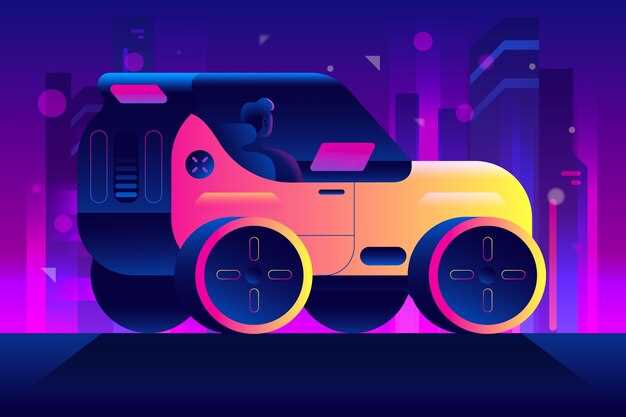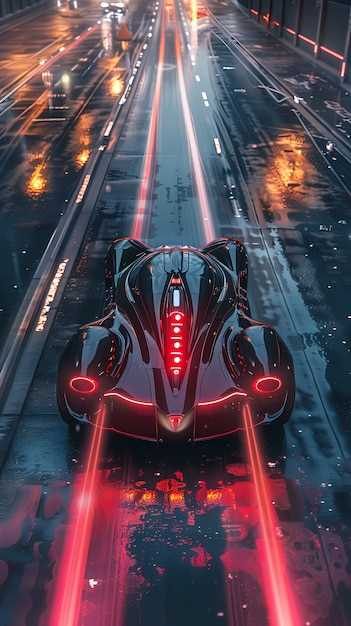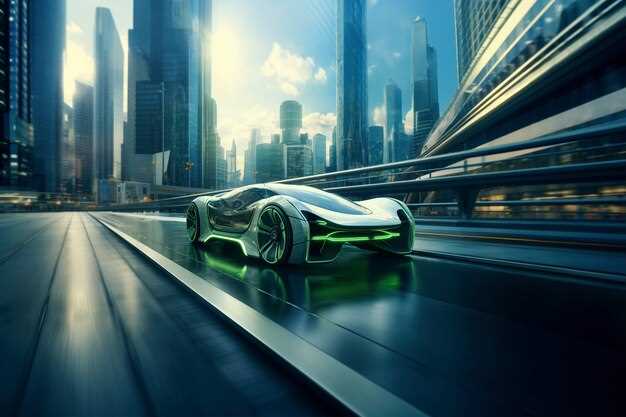The Future of Electric Racing for Volkswagen

The future of electric racing stands at the intersection of technology and performance, with Volkswagen (VW) positioning itself as a key player in this dynamic evolution. As environmental concerns grow and the demand for sustainable practices in motorsport intensifies, VW is committed to revolutionizing the racing landscape through innovative electric solutions. The integration of advanced battery technologies and unparalleled aerodynamics marks the beginning of a new era in racing for the brand.
Volkswagen’s racing division is strategically focused on harnessing cutting-edge innovations to enhance the competitive edge of its electric vehicles. With a vision that encompasses both high performance and sustainability, VW aims to redefine what it means to race in the modern age. The commitment to electrification not only reflects a shift in motorsport but also highlights the potential for a broader impact on consumer vehicles.
As VW continues to invest in electric racing technologies, the excitement surrounding future events is palpable. These developments promise to enhance the thrill of racing while adhering to principles of environmental responsibility. By pushing the boundaries of electric performance and embracing new strategies, Volkswagen is not just participating in the race; it is setting the pace for what the future holds in racing.
Advancements in Battery Technology for Enhanced Performance
The future of VW racing is heavily dependent on ongoing innovations in battery technology. With the increasing demand for high-performance electric vehicles, advancements in battery systems are becoming crucial for achieving superior speed, efficiency, and endurance on the track. One of the primary focuses is on enhancing energy density, allowing for lighter batteries that can store more power within a compact size. This improvement directly contributes to faster acceleration and longer race durations, minimizing the need for frequent pit stops.
Solid-state batteries are emerging as a promising solution for VW’s racing endeavors. Compared to traditional lithium-ion batteries, solid-state variants offer greater safety, reduced weight, and enhanced thermal stability. The implementation of solid-state technology could provide VW with a competitive edge, enabling a substantial increase in performance without compromising safety and reliability.
Rapid charging capabilities are another significant area of research. Innovations in fast-charging technology aim to reduce downtime between races. VW is exploring high-capacity charging stations that can quickly replenish vehicle energy, ensuring a seamless racing experience. This aligns with their commitment to sustainability while still pushing the boundaries of speed and performance.
Recycling and repurposing battery materials are also pivotal trends within VW’s innovation strategy. By developing efficient recycling processes, VW can not only reduce environmental impact but also ensure a sustainable supply of critical resources for future battery production. This approach supports the long-term vision for electric racing, emphasizing that performance and sustainability can coexist.
As VW continues to invest in these advancements, the integration of cutting-edge battery technology paves the way for thrilling future racing experiences. Enhanced performance achieved through these innovations will undoubtedly redefine the landscape of electric racing, positioning VW as a leader in this evolving field.
Integration of AI and Machine Learning in Race Strategy

The future of electric racing for Volkswagen (VW) is increasingly intertwined with the capabilities of artificial intelligence (AI) and machine learning. As the competitive landscape evolves, integrating these technologies into race strategy will become essential for maximizing performance and efficiency.
AI algorithms can process vast amounts of data in real time, allowing teams to analyze variables such as track conditions, weather changes, and competitor behavior. By leveraging this information, VW can optimize their race strategies, making timely decisions that can significantly impact race outcomes.
For instance, predictive analytics can enhance pit stop strategies by forecasting tire wear and fuel consumption based on race dynamics. Machine learning models can refine these predictions over time, adapting to specific racing conditions and helping VW anticipate the optimal moments for executing various tactics during a race.
Moreover, AI-driven tools can simulate countless racing scenarios, empowering teams to explore the repercussions of different strategies before implementing them on the track. This level of preparation enables VW to approach races with confidence, ready to adapt to ever-changing race conditions while maintaining a competitive edge.
Furthermore, AI can facilitate real-time communication between drivers and their support teams. By employing advanced algorithms, the system can suggest live adjustments to the racing strategy, empowering drivers with actionable insights at critical moments. This dynamic interaction creates a holistic approach to racing, integrating human intuition with the analytical power of machines.
In conclusion, the integration of AI and machine learning into race strategy is set to redefine how VW approaches electric racing. As these technologies evolve, they will enable VW to remain at the forefront of innovation, ensuring that their racing teams are equipped to tackle the challenges of tomorrow’s circuits.
Sustainable Materials and Design Practices in Electric Race Cars

The future of racing is not only about speed and performance; it is also heavily influenced by sustainability. VW is at the forefront of integrating sustainable materials and design practices into their electric race cars. The incorporation of eco-friendly materials plays a crucial role in minimizing the environmental footprint of these high-performance vehicles.
One of the key innovations is the use of lightweight, renewable materials such as bio-based composites. These materials, sourced from natural fibers, not only reduce overall weight but also enhance the aerodynamic efficiency of race cars. By utilizing such materials, VW ensures that their electric race cars maintain top-tier performance without compromising sustainability.
Additionally, the design practices within electric racing are shifting towards modular architecture. This concept allows for easier repairs and upgrades, extending the life cycle of the vehicle components. Implementing modularity means that critical parts can be replaced or upgraded with minimal waste, aligning with the principles of circular economy.
VW is also focusing on recycled materials, utilizing components sourced from past vehicles and manufacturing processes. This approach not only decreases the demand for new raw materials but also reduces energy consumption associated with production. By harnessing recycled materials, VW aims to create electric racing cars that are not only competitive on the track but also responsible in their manufacturing processes.
Furthermore, the adoption of sustainable design practices includes enhancing energy efficiency through advanced aerodynamics. Streamlined designs reduce energy consumption during races, maximizing the efficiency of electric powertrains. This focus on reducing drag and optimizing airflow is fundamental to achieving superior performance while ensuring sustainability remains at the core of VW’s electric racing innovations.
In conclusion, the commitment to sustainable materials and design practices in electric race cars marks a significant step forward for VW. By prioritizing the use of renewable, recycled, and lightweight materials, along with innovative design strategies, the future of electric racing looks promising and environmentally responsible.



